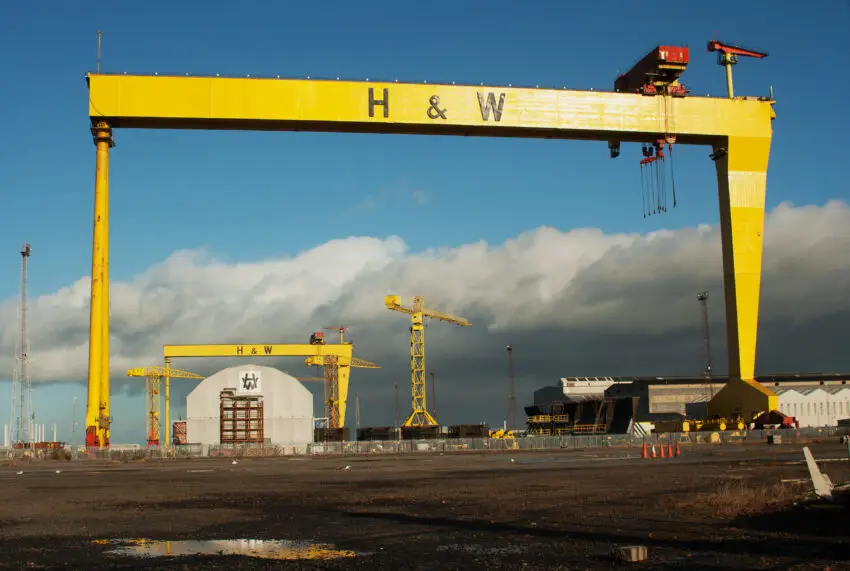The historic Harland & Wolff shipyard has found itself in troubled waters once again. Following a $25 million bailout, questions are being asked about the future of Royal Navy warship construction.
Based in Belfast and famous for building the Titanic, Harland & Wolff has shifted focus to its core operations after scrapping plans to restart ferry services between Cornwall and the Scilly Isles.
Harland & Wolff’s Financial Rescue
The historic Harland & Wolff shipyard has received a $25 million bailout, triggering concerns about the future of Royal Navy warship construction. This emergency funding brings into question the stability of this iconic company, known for building the Titanic.
Harland & Wolff has decided to scrap plans for restarting ferry services between Cornwall and the Scilly Isles. Instead, the company will concentrate on core operations spanning its four main UK shipyards. The decision comes after securing crucial funding from Riverstone, a Wall Street credit investor.
Leadership Changes and Challenges
With the bailout came the immediate resignation of John Wood, the company’s chief executive. This shakeup is seen as a significant development for the shipyard’s future.
Harland & Wolff is already burdened with $100 million in loans at a steep 14% interest rate from an American asset manager. Additionally, Rothschild & Co has been hired to explore strategic options for the company.
Despite these efforts, the shipyard’s financial instability casts doubt over its ability to fulfil a £1.6 billion Ministry of Defence contract to build three military vessels.
Potential Overseas Construction
This situation raises the possibility that these ships could be constructed by a Spanish shipyard, something unprecedented for the Royal Navy.
The prospect of Royal Navy vessels being built overseas has sparked significant concern among British industry experts. There are fears this could set a troubling precedent for the future.
Government’s Stance and Market Reaction
Last month, the incoming Labour government declined to support a taxpayer-funded bailout for Harland & Wolff. This has left the shipyard in a precarious position.
Following the government’s decision, the company’s shares were suspended on Aim, the junior stock market, having been bought out of administration five years ago.
Gratitude and Future Prospects
Malcolm Groat, chairman of Harland & Wolff, has expressed gratitude towards their lenders, stating their funding commitment is crucial for the company’s stabilisation. He also mentioned the importance of working with Rothschild & Co for future objectives.
Groat’s statement reflects a sense of cautious optimism despite the financial challenges that lie ahead.
The $25 million bailout of Harland & Wolff has undoubtedly raised numerous questions about its future. The company’s financial instability, coupled with the potential for Royal Navy ships to be constructed overseas, remains a concern.
While the company has expressed gratitude for the support it has received, only time will tell if Harland & Wolff can navigate these troubled waters successfully.

